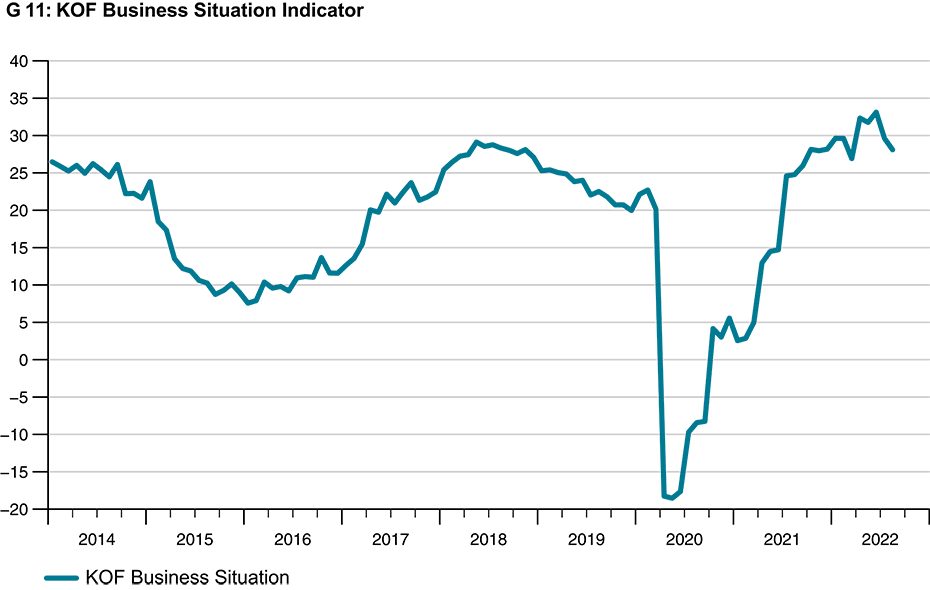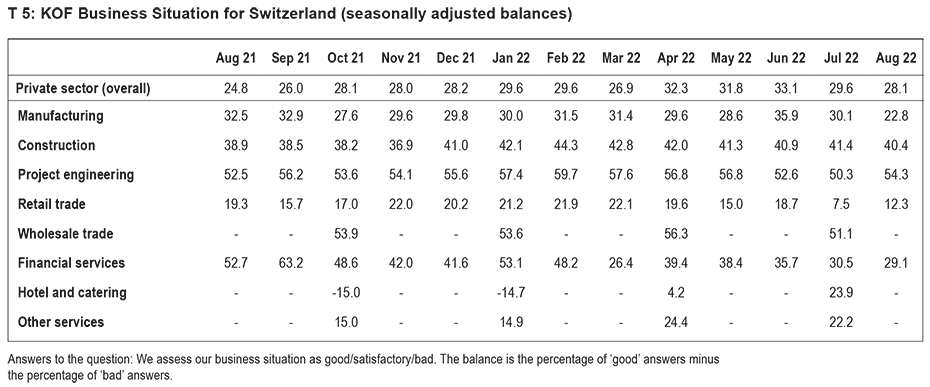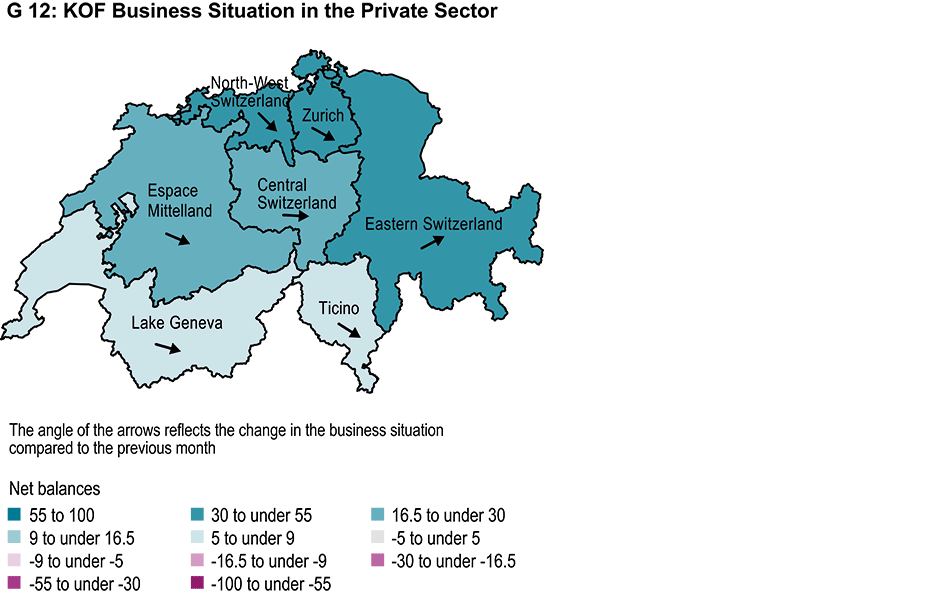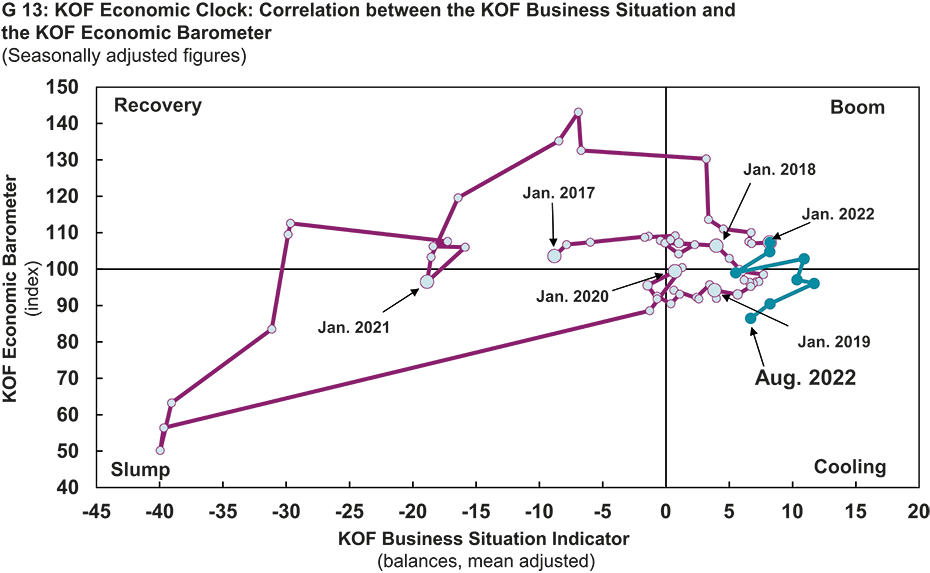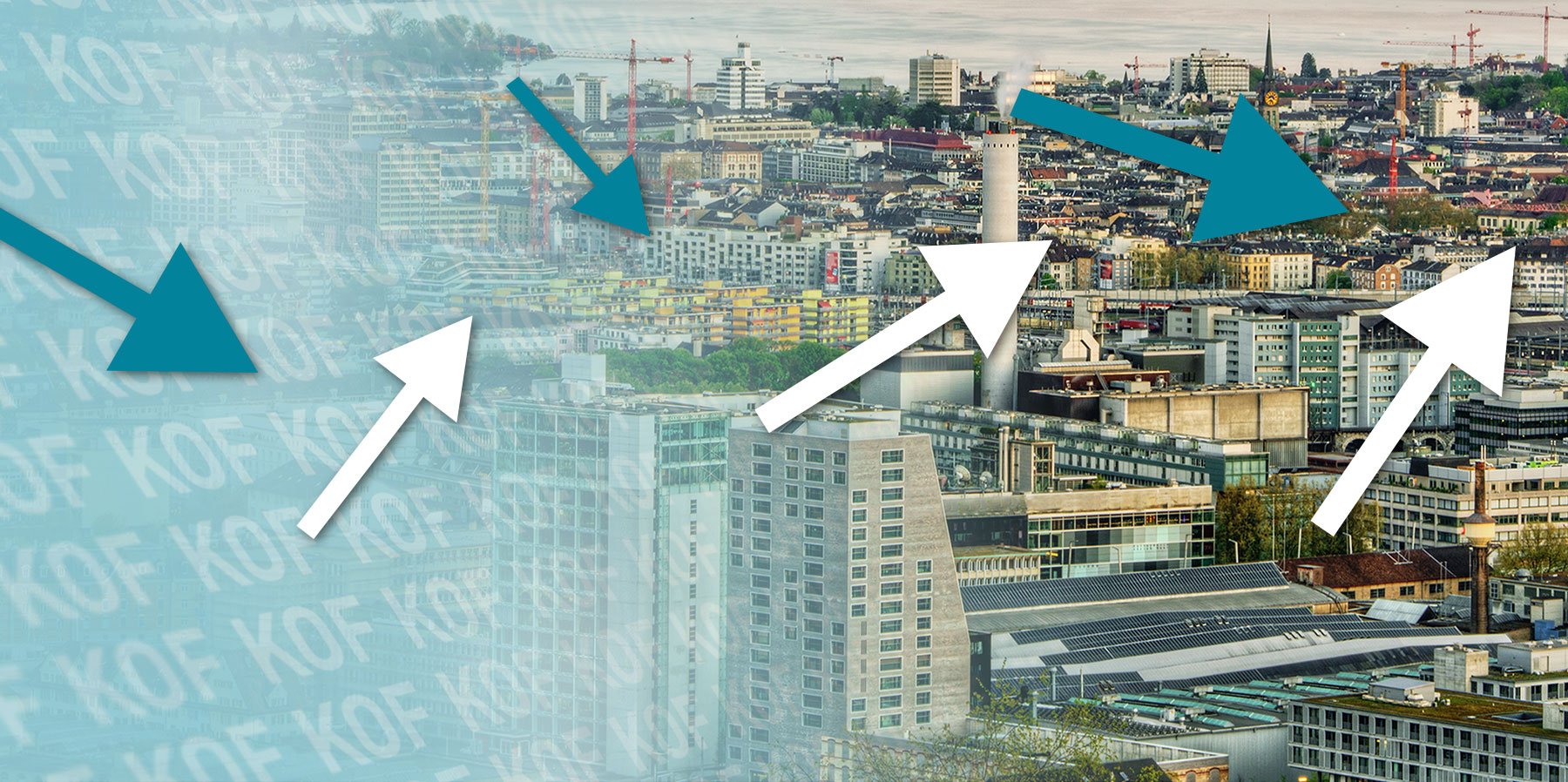
Business activity at Swiss companies continues to slow
The KOF Business Situation Indicator fell in August for the second month in a row. Although the situation is more encouraging now than it was a year ago, it was noticeably more positive this spring and during the earlier summer months. The Swiss economy is clearly showing signs of slowing.
The Business Situation Indicator for the manufacturing sector fell sharply in August. Business activity at intermediate-product manufacturers in particular collapsed. The indicator for producers of capital goods and consumer goods remained more or less unchanged from the previous month. However, companies are also concerned about the future level of demand. Manufacturers of intermediate products and capital goods increasingly expect demand to slow in the near future. The Business Situation Indicator for the retail sector is heading in the opposite direction. After suffering a sharp decline in the previous month, business here is recovering. The business situation is also improving in project engineering. The changes in business activity were less pronounced in the other sectors surveyed in August. The Business Situation Indicator for the financial and insurance services sector and for construction fell slightly.
Business activity is slowing in the majority of regions defined by the Swiss Federal Statistical Office (FSO); this is the case in Northwestern Switzerland, Ticino, the Zurich region, Espace Mittelland and the Lake Geneva region. The situation in Central Switzerland remains almost unchanged, while business in Eastern Switzerland is slightly more encouraging than it was in the previous month.
The KOF Business Situation Indicator highlights companies’ current business situation. The KOF Economic Barometer, on the other hand, is an indicator of the economic outlook. The Business Cycle Clock shows that the economy was abruptly slowed by the pandemic in April 2020. After a rather disappointing start to 2021, the Swiss economy subsequently recovered. Although the economy continued to recover in the first months of 2022, it slowed noticeably in the summer.
Explanation
Chart G 11 shows the KOF Business Situation Indicator across all sectors included in the survey. The business situation of sectors that are only surveyed quarterly is kept constant in the interim months.
Chart G 12 shows the business situation in the main regions defined by the Swiss Federal Statistical Office. The regions are coloured differently to reflect their business situation. The arrows within the regions indicate the change in the situation compared with the previous month. An upward-pointing arrow indicates that the situation has improved compared with the previous month.
The Business Situation Indicator in the KOF Business Cycle Clock (Chart G 13) is plotted against the KOF Economic Barometer. The indicator reflects the current business situation, while the barometer is a leading indicator of changes in activity. The clock can be divided into quadrants. During the recovery phase the business situation is below average but growth prospects are above average. At the peak of the economic cycle the situation and prospects are both above average. During the slowdown phase the situation is above average and the prospects are below average. At the bottom of the economic cycle the situation and outlook are both below average. Ideally the chart runs through the quadrants in a clockwise direction.
The KOF Business Situation Indicator is based on more than 4,500 reports from firms in Switzerland. Companies in industry, the retail sector, construction, project engineering and financial services and insurance are surveyed monthly. Businesses in the hospitality, wholesale and other services sectors are surveyed during the first month of each quarter. These firms are asked, among other things, to assess their current business situation. They can rate their situation as either ‘good’, ‘satisfactory’ or ‘poor’. The net balance of their current business situation is the difference between the percentages of ‘good’ and ‘poor’ responses.
Contact
KOF Konjunkturforschungsstelle
Leonhardstrasse 21
8092
Zürich
Switzerland

